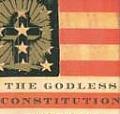
There is, among rightwingers predominantly, though not exclusively, a rather persistent misconception that the United States is at its roots a religious nation.
This is demonstrably false, and rather easy to verify, as we shall see in a moment, but first let us note that the subject is significant (and becoming more so) not because of any particular issue I or anyone else may have with religion in the capacity of religion, but rather because the true founding premise of this country cannot survive upon a religious base.
That founding premise is the principle of individual rights.
The United States, as we’ve noted before (and can never note enough), is the only country in the history of the world founded explicitly upon individual rights.
It was the principle of individual rights — the sheer strength of it — that corrected the contradictions and the great injustices that were also once a part of the United States.
It was the principle of individual rights that successfully overthrew the barbaric institution of slavery:
It was the principle of individual rights that brought this country to civil war, and it was the principle of individual rights that won out.
Among many other things, individual rights mean that if you choose to worship a Christian God, you are free to do so.
It means that if you choose to worship a Pagan God, you are free to do so.
It means that if you choose to worship no God at all, you are free to do so.
In this country, you are free to do anything you wish, provided you do not infringe upon the equal rights of any other person.
Your rights stop where another’s begin. In this way, rights are compossible — i.e. they do not and cannot conflict.
Such is the nature of individual rights.
Rights are a formal codification of human freedom.
Rights state explicitly the fact that no other person or institution has rightful jurisdiction over the person or property of another.
Rights are discoveries, not inventions.
One proof of this is found in the fact that the only alternative to acting by right is acting by permission. Whose permission?
Answering that question is where you’ll begin to glimpse the true nature of rights: if humans only act by permission, who gives permission to those whose permission the rest of us are acting under? And who gives permission to those above, and so on?
Answer: no one — because rights are inalienable in the literal sense: they are not granted, and they cannot be revoked or transferred.
The reason rights cannot survive a religious grounding is that religion, by definition, is built upon faith, whereas rights are the exact opposite: they are demonstrably rooted in the human quiddity — namely, the faculty of volition, moral agency, and human individuation.
From a philosophical perspective, a religious defense of rights is absurdly unequipped to withstand the onslaught of secular attacks, as recent history has also proven, and indeed it is this as much as anything else that has eroded the principle of rights down to virtual non-existence:
The most prominent defenders of rights have sought to defend rights from a religious rather than philosophic premise, and rights have suffered immeasurably from it.
So much so, in fact, that the concept of individual rights is understood by only the slimmest minority of people, and that is why the subject of rights has all but vanished from political discourse today.
Religion must be separated from rights if rights are to survive.
It is a fact that neither the word “God” nor the word “Christ” appears anywhere in the United States Constitution. When asked why, Alexander Hamilton replied: “We forgot.”
The Jeffersonian “wall of separation” was actually originated by a Baptist minister named Roger Williams, who fought mightily to remove religion from government and vice-versa. Thomas Jefferson fully sanctioned this idea — all rightwing propaganda to the contrary notwithstanding — when, in 1801, he wrote the following in a letter to the Danbury Baptist Church:
Believing with you that religion is a matter which lies solely between man and his God; that he owes account to none other for his faith or his worship; that the legislative powers of the government reach actions only, and not opinions, I contemplate with sovereign reverence that act of the whole American people which declared that their legislature should ‘make no law respecting an establishment of religion, or prohibiting the free exercise thereof,’ thus building a wall of separation between church and State. Adhering to this expression of the supreme will of the nation in behalf of the rights of conscience, I shall see with sincere satisfaction the progress of those sentiments which tend to restore man to all of his natural rights, convinced he has no natural right in opposition to his social duties.
Please note the First Amendment echoes there. The First Amendment reads: “Congress shall make no law respecting an establishment of religion.”
And Article VI, Section 3 of the Constitution: “No religious test shall ever be required as a qualification to any office or public trust of the United States.”
Note also in Jefferson’s native state of Virginia, the 1786 Act for Establishing Religious Freedom, which he and his friend James Madison helped draft, read, in part:
“No man shall be compelled to frequent or support any religious worship, place or ministry whatsoever, nor shall be enforced, restrained, molested, or burdened in his body or goods, nor shall otherwise suffer on account of his religious opinions of belief….”
John Adams: “The government of the United States is not in any sense founded on the Christian religion” (Article 11, Treaty of Tripoli).
James Madison: “Religion and government will both exist in greater purity, the less they are mixed together.”
James Madison: “Religious bondage shackles and debilitates the mind and unfits it for every noble enterprise…. During almost fifteen centuries has the legal establishment of Christianity been on trial. What have been its fruits? More or less, in all places, pride and indolence in the clergy; ignorance and servility in laity; in both, superstition, bigotry, and persecution” (Memorial and Remonstrance Against Religious Assessments).
In a letter from 1819, James Madison wrote that “the number, the industry and the morality of the priesthood, and the devotion of the people have been manifestly increased by the total separation of the church and state.”
In an undated essay, Madison also wrote the following: “Strongly guarded is the separation between religion and government in the Constitution of the United States.”
Benjamin Franklin: “My parents had given me betimes religious impressions, and I received from my infancy a pious education in the principles of Calvinism. But scarcely was I arrived at fifteen years of age, when, after having doubted in turn of different tenets, according as I found them combated in the different books that I read, I began to doubt Revelation itself” (p. 66 of Ben Franklin’s autobiography).
Thomas Paine: “I do not believe in the creed professed by the Jewish church, by the Roman church, by the Greek church, by the Turkish church, by the Protestant church, nor by any church that I know of. Each of those churches accuse the other of unbelief; and of my own part, I disbelieve them all” (The Age of Reason, p. 89).
Thomas Paine: “All natural institutions of churches, whether Jewish, Christian, or Turkish, appear to me no other than human inventions, set up to terrify and enslave mankind, and monopolize power and profit…. The most detestable wickedness, the most horrid cruelties, and the greatest miseries that have afflicted the human race have had their origin in this think called revelation, or revealed religion…. What is it the Bible teaches us? Rapine, cruelty, and murder…. Loving of enemies is another dogma of feigned morality, and has beside no meaning. Those who preach the doctrine of loving their enemies are in general prosecutors, and they act consistently by so doing; for the doctrine is hypocritical, and it is natural that hypocrisy should act the reverse of what it preaches” (The Age of Reason).
George Washington: “I oppose the horrors of spiritual tyranny, and every species of religious persecution…. [Every American should] worship according to the dictates of his own heart.”
In 1783, George Washington rejoiced that in this country “the light of truth and reason had triumphed over the power of bigotry and superstition.”
John Adams: “Twenty times in the course of my late reading, have I been upon the point of breaking out, ‘this would be the best of all possible worlds, if there were no religion in it’” (Letter to Charles Cushing, October 19, 1756).
In a letter to Thomas Jefferson, John Adams wrote: “I almost shudder at the thought of alluding to the most fatal example of the abuses of grief which the history of mankind has preserved — the Cross. Consider what calamities that engine of grief has produced!”
Also from John Adams: “The doctrine of the divinity of Jesus is made a convenient cover for absurdity…. Thirteen governments [referring to the original states] thus founded on the natural authority of the people alone, without pretence [sic] of miracle or mystery, and which are destined to spread over the northern part of that whole quarter of the globe, are a great point gained in favor of the rights of mankind.”
Reverend Jedidiah Champion, closing his Sunday service with a prayer in 1797, said this: “O, Lord: wilt Thou bestow upon the Vice President [Thomas Jefferson] a double portion of They grace, for Thou knowest he needs it.”
Reverend Timothy Dwight, 1798, said: “Why should the religious support the philosophers, the atheists, like Thomas Jefferson?”
Reverend William Linn opposed Thomas Jefferson in print for “his disbelief of the Holy Scriptures; or in other words his rejection of the Christian Religion …”
“And if,” continues the God-fearing Reverend, “this opposer of Christianity [were to become President it would] destroy religion, introduce immorality and loosen all the bonds of society.”
New York clergyman, Dr. John Mason publicly referred to Thomas Jefferson as “a confirmed infidel and lacks so much as a decent respect for the faith and worship of Christians.”
New England Palladium (a popular newspaper): “Should the infidel Jefferson be elected to the Presidency, the seal of death is that moment set on our holy religion, our churches will be prostrated, and some infamous prostitute, under the title of Reason, will preside in the sanctuaries now devoted to worship of the Most High.”
The Christian Federalist: “Can serious and reflecting men look about them and doubt that if Jefferson is elected president, those morals which protect our lives from the knife of the assassin — which guard the chastity of our wives and daughters from seduction and violence — defend our property from plunder and devastation, and shield our religion from contempt and profanation, will not be trampled upon and exploded?”
Thomas Jefferson was repeatedly called by clergymen “a howling atheist,” and even accused of “libel against Christ.”
Ask yourself: if he was devoutly religious, why was he slandered so? And why did he edit out all the miracles in his copy of the New Testament?
Thomas Jefferson: “An amendment was proposed by inserting the words ‘Jesus Christ, the holy author of our religion’ but was rejected by a great majority in proof that they meant to comprehend, within the mantle of its protection, the Jew and the Gentile, the Christian and the Mohammedan, the Hindu and the Infidel of every denomination” (From Thomas Jefferson’s biography; please mark well those last words: “Infidel” meant “unbeliever,” which in turn meant “atheist”).
Thomas Jefferson: “Our civil rights have no dependence on our religious opinions…. The legitimate powers of government extend only to such acts as are injurious to others. But it does me no harm for my neighbor to say there are twenty gods, or no god. It neither picks my pocket nor breaks my leg” (Notes on the State of Virginia).
Thomas Jefferson: “The day will come when the mystical generation of Jesus, by the Supreme Being as his father, in the womb of a virgin, will be classes with the fable of the generation of Minerva in the brain of Jupiter” (From the margins of Jefferson’s Bible).
Thomas Jefferson: “They [the clergy who denounced him] believe that any portion of power confided to me, will be exerted in opposition of their schemes. And they believe rightly: for I have sworn upon the alter of god eternal hostility against every form of tyranny over the mind of man” (i.e. any faith forced upon us).
Thomas Jefferson: “I have examined all the known superstitions of the world, and I do not find in our particular superstition of Christianity one redeeming feature. They are all alike founded on fables and mythology. Millions of innocent men, women and children, since the introduction of Christianity, have been burnt, tortured, fined, and imprisoned. What has been the effect of this coercion? To make one half of the world fools and the other half hypocrites; to support roguery and error all over the earth.”
Thomas Jefferson: “Christianity [has become] the most perverted system that ever shone on man. Rogueries, absurdities and untruths were perpetrated upon the teachings of Jesus by a large band of dupes and importers led by Paul, the first great corrupter …”
Thomas Jefferson giving advice to his nephew: “Fix reason firmly in her seat, and call to her tribunal every fact, every opinion. Question with boldness even the existence of God; because if there be one, he must more approve of the homage of reason, than the blindfolded fear…. If it end in a belief that there is no God, you will find incitements to virtue on the comfort and pleasantness you feel in its exercise and in the love of others which it will procure for you.”
Thomas Jefferson: “Our rights have no dependence on religious opinions.”
Faith and force are the antithesis of reason and rights.
Rights do not depend upon religion or God or gods but just the opposite: rights are an inherent part of the human faculty of rationality.
Rights are how we survive on this earth, and they exist without any reference whatsoever to a religious ideology.
Until that principle is fully grasped, rights are every bit as endangered by conservatives as they are by liberals — and that’s saying a lot.




